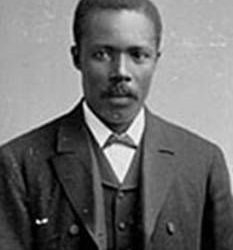The potato chip (aka crisps) was invented in 1853 by George Crum. The son of an African-American father and a Native American mother, Crum was a chef at the Moon Lake Lodge resort in Saratoga Springs, New York, USA.
French fries were popular at the restaurant and one day a diner complained that the fries were too thick. Although Crum made a thinner batch, the customer was still unsatisfied. Crum finally made fries that were too thin to eat with a fork, hoping to annoy the extremely fussy customer. The customer, surprisingly enough, was happy – and potato chips were invented!
Years later, Crum opened his own restaurant that had a basket of potato chips on every table. Though Crum never attempted to patent his invention, the snack was eventually mass-produced and sold in bags.
George Crum died on 22 July 1914.






this guy is a living legend